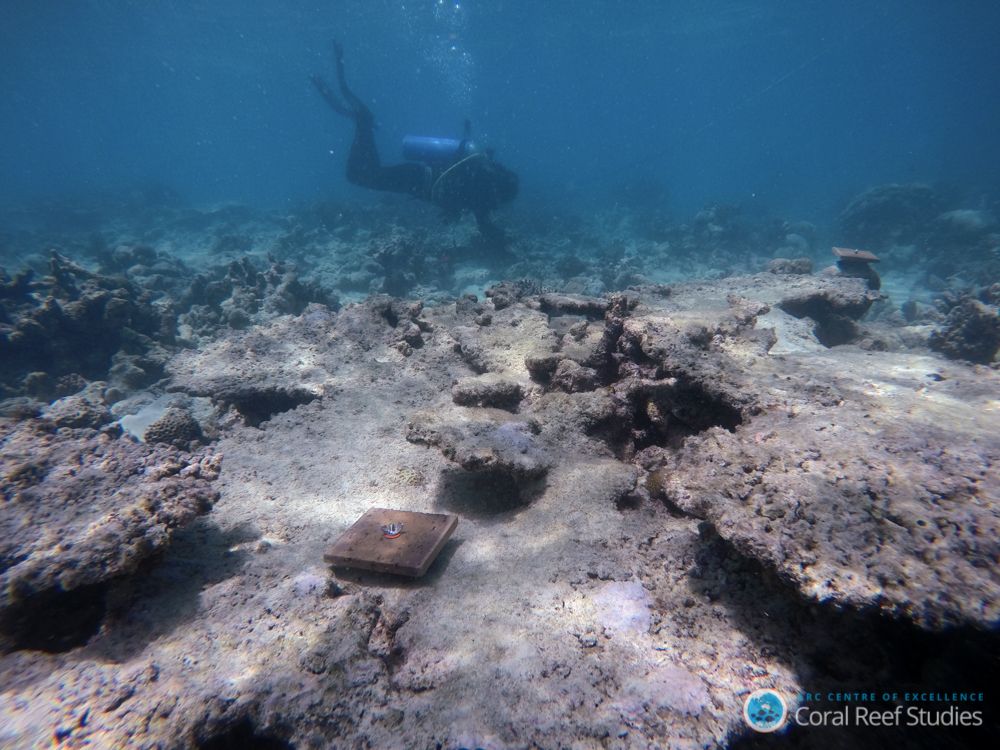
Events linked to global warming have damaged the Great Barrier Reef to such an extent that the ability of its corals to recover from shocks has been severely disrupted.
According to a study published in the journal Nature, the replenishment of new coral fell by a staggering 89 percent following two severe mass bleaching events in 2016 and 2017, which were caused by significant spikes in water temperature.
The two bleaching events were the worst in recorded history, leading to a catastrophic die-off in many regions of the 3,800 individual reefs that comprise the world's largest reef system.
Bleaching happens when corals are placed under stressful conditions—such as high temperatures—to which they respond by expelling tiny plant-like organisms called zooxanthellae that live inside their tissue, causing them to turn white.
This is not immediately fatal to the corals, because they can reabsorb the zooxanthellae. But if the stressful conditions persist for too long, they die.
"Dead corals don't make babies," Terry Hughes, lead author of the study from the Australian Research Center of Excellence for Coral Reef Studies at James Cook University, said in a statement.
"In 2016 and 2017, close to half of the corals on the Great Barrier Reef died because of record-breaking sea temperatures," Hughes told Newsweek. "Our study investigated how the production of baby corals has been affected by the loss of adult brood stocks."
For the study, researchers examined how many adult corals survived the mass bleaching events, while they also looked at the recruitment of new coral. They then compared this data to measurements taken before the mass bleachings.
They found that coral replenishment in 2018 had been severely depleted by the loss of breeding adults, while the mix of baby corals had also shifted, according to Hughes. This reduced rate of recovery could have significant implications for the reef's ability to cope with future stress events, escalating the risk of "widespread ecological collapse of current ecosystems," the authors wrote in the study.
"The rate of recovery has been slowed by the extent of damage to adult breeders in 2016 and 2017," Hughes said. "The mix of future adults will be different from the past. The reef won't disappear, but it is already transitioning rapidly to a new configuration."
The authors predict that coral recruitment will gradually recover over the next five or 10 years as more reach sexual maturity, but only if there are no further mass bleaching events. However, in an era of climate change, this is looking increasingly unlikely, given that extreme events—such as mass bleachings—are predicted to increase in frequency.
In the past 20 years, the Great Barrier Reef has experienced four mass bleaching events (1998, 2002, 2016 and 2017). But scientists predict that these could occur twice a decade from 2035 and every year after 2044, under projections based on current greenhouse gas emission trends. This would mean the gap between each shock would shorten, giving the coral less and less time to recover.
"It's highly unlikely that we could escape a fifth or sixth event in the coming decade," co-author Morgan Pratchett said in a statement. "We used to think that the Great Barrier Reef was too big to fail—until now. For example, when one part was damaged by a cyclone, the surrounding reefs provided the larvae for recovery."
"But now, the scale of severe damage from heat extremes in 2016 and 2017 was nearly 1,500 kilometers—vastly larger than a cyclone track."
According to Hughes, there's only one way to fix this problem and that's "to tackle the root cause of global heating by reducing net greenhouse gas emissions to zero as quickly as possible."
Aside from bleaching and cyclones, the Great Barrier Reef—like other reefs around the world—faces a number of other threats. These include polluted water, poor water quality, disease outbreaks, parasites and destructive fishing or tourism practices.
While several studies have demonstrated that corals exhibit a remarkable ability to bounce back after disturbances, and may even be capable of adapting to rising temperatures in some circumstances, research has shown that the more stress they are put under, the lower their long-term survival chances are.
In fact, the latest paper is not the only one to suggest that the ability of the Great Barrier Reef's corals to recover has been disrupted. A 2018 Science Advances study, for example, also came to a similar conclusion.
"Corals of the Great Barrier Reef [GBR] have declined over the past 30 years," the authors of the 2018 paper wrote. "We show that coral recovery rates across the GBR declined by an average of 84 percent between 1992 and 2010. Recovery was variable: Some key coral types had close to zero recovery by the end of that period, whereas some reefs exhibited high recovery."
The GBR is the largest living structure on Earth, stretching for more than 1,400 miles, while providing a home for thousands of different animal species.
Uncommon Knowledge
Newsweek is committed to challenging conventional wisdom and finding connections in the search for common ground.
Newsweek is committed to challenging conventional wisdom and finding connections in the search for common ground.
About the writer
Aristos is a Newsweek science reporter with the London, U.K., bureau. He reports on science and health topics, including; animal, ... Read more
To read how Newsweek uses AI as a newsroom tool, Click here.








